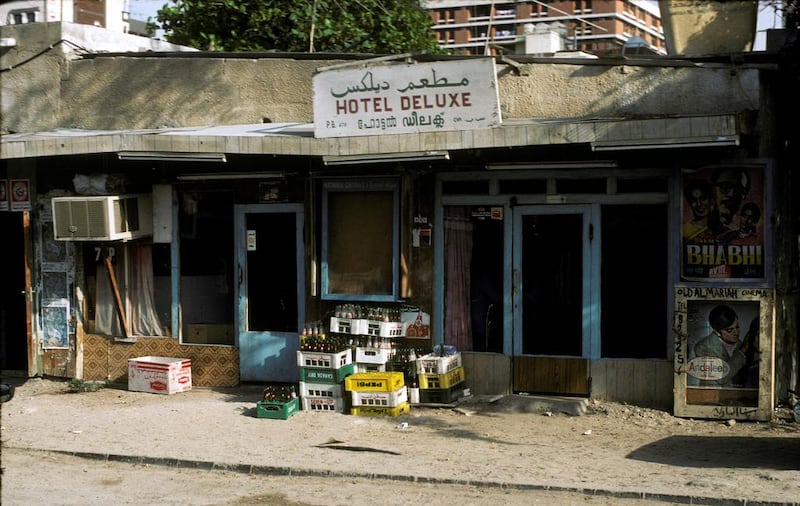The Volcano Fountain, the old souq and the Clock Tower roundabout. These are just some of the landmarks of old Abu Dhabi that are now just memories. The souq, a warren of shops and stalls close to Airport Road, burned down in 2003 and was replaced by the World Trade Centre complex. The fountain and Clock Tower, meanwhile, disappeared in 2004 to make way for the massive redevelopment of the Corniche we enjoy today.
While these landmarks may have disappeared from the physical landscape, they have found a new lease of life online. A Facebook group dedicated to sharing memories of the capital has swiftly amassed more than 20,500 members, and adds more every day.
On the "Life in Abu Dhabi – 80s 90s" wall, people post about the restaurants, cafes, TV stations, news anchors, beaches, shops and toys that were unique to the city during this time. Some posts even detail the computer messenger programmes people used before the proliferation of mobile phones. It is a fun and vibrant forum that paints a vivid picture of life in a rapidly-changing city.
For Hamzah Ahmed Baidhani, these days were a golden age.
“All my beautiful and unforgettable memories are posted in this group, and I feel it’s a time machine that brings me back to the golden days,” says Baidhani, whose parents were originally from Yemen but who has lived in Abu Dhabi all his life.
“This group reminds me of the humbleness and simplicity of our life then. Today, the lifestyle has changed 80 per cent.”
Posts on the forum also detail many other demolished landmarks, such as the pearl fountain in the Markaziyah district, the old Mushrif Park and the gold and white taxis.
“Abu Dhabi had known city limits then, beyond that were all sand areas,” notes Taha Bani Hashim, an Emirati who retired from Abu Dhabi Company for Onshore Oil Operations (ADCO) after 33 years’ service last year and occasionally posts to the group from the company’s archive of images.
“Streets were not busy and there was only one so-called shopping mall, the Hamdan Centre. The majority of expatriates in Abu Dhabi were Indians, Pakistanis, Bengalis, Egyptians, Palestinians and Sudanese, with a minority of Europeans.”
The population of the city was about 280,000 in 1985, rising to almost 400,000 by 1995, still a relatively modest community compared with the 1.5 million-plus that live here today. Residents during this time were exposed to the same trends. There was no internet and living here was a shared experience.
“Fashion and fads were quick to spread, be it a new running shoe in the market or a school bag. It was just a big village. Opening up, yet still closed,” says Nathalie Mansour, another one of the group’s members. “Abu Dhabi had its own smell, taste ... sounds and language. There were certain characters you were familiar with.”
One of these was a type of travelling salesperson, says Mansour, who grew up in the UAE. Usually from India or Afghanistan, he would call at apartments and villas selling items from a sack of goods.
“Pyjamas, beach towels, cotton dresses, etc. The whole floor would gather around him, with women and children checking out the new collection. It was fun having the ‘shop’ come to your doorstep.”
The popularity of the group highlights the power of social media. Inevitably in a city that attracts significant numbers of expatriates, many have now moved on but, by scrolling through the posts, they are immediately transported back to a specific time and place.
“I feel very close with the other group members who post, even though I don’t know them personally,” says Eman Balfagieh, who is from Yemen but grew up in Abu Dhabi during the 1990s.
“Just by posting random pictures brings me back, and gives me a strong feeling that we all grew up together.”
For Mansour, the group represents a sense of belonging.
“I like this group, it makes me smile. There’s always someone who posts something that again strikes my nostalgia. The old Abu Dhabi is dear to my heart.”
John Dennehy is deputy editor of The Review.






